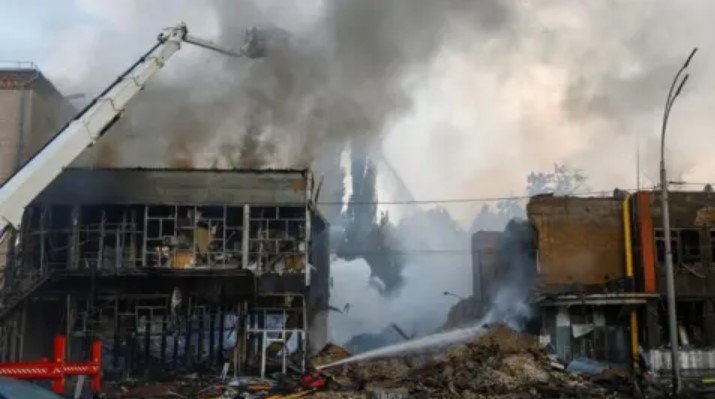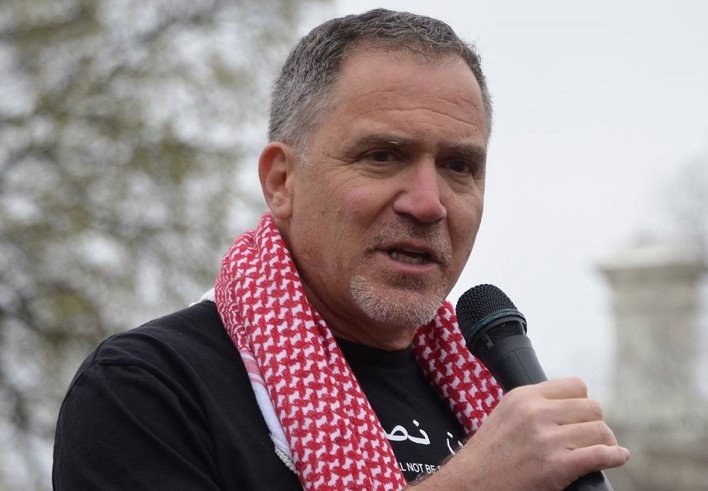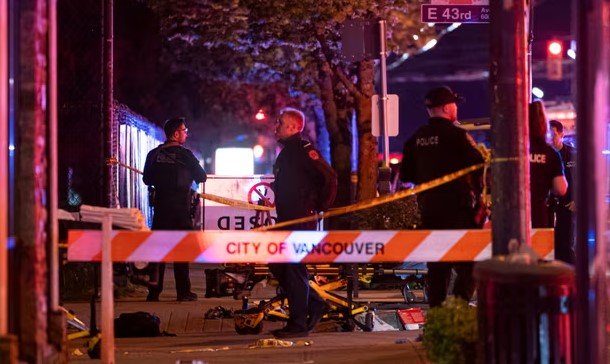An early-morning missile raid on Odesa has claimed one life and left at least eight others wounded. City officials say the strike, which hit just after 4:20 a.m., tore into a quiet apartment block and showered debris across Kiliyska Street.
The pop and rumble shook residents awake mere seconds before emergency sirens blared. Crews worked for hours under a thin dawn light, prying up chunks of concrete in the hope that more survivors might still be breathing beneath the wreckage.
Broader Assault on Black Sea Security
Analysts warn this bombing fits a worrying pattern: a stepped-up campaign against Ukraine’s Black Sea hubs. Ports and shipping yards that once buzzed with grain exports are now reappearing in the crosshairs, fueling speculation that Moscow is testing its reach far beyond the battlefield.
Local Governor Denounces Civilian Targeting
Oleh Kiper, Odesa’s regional governor, branded the strike a calculated blow to civilian life. Speaking at a midday briefing, he stressed, This was not a military depot. A family lay asleep when the missile punched through their roof. In my view, that qualifies as terrorism, not warfare.
Kyiv emergency chief Oleksandr Kiper reported that a woman in her sixties lost her life when a chunk of the apartment block gave way. In the same chaos, two children and a pregnant survivor were hurt and whisked to the nearest hospitals. Medics on the ground later reassured families that, while several wounds looked bad, none of the cases appeared to be life-threatening.
Mobile-phone video verified by district reporters shows a smoldering crater at what used to be the building’s foundation. Fire crews battled the flames, and paramedics draped survivors in silver heat blankets.
The Russian Defense Ministry had still not commented by Friday evening. Moscow routinely insists its munitions fly only toward military targets, yet Ukrainian officials- and intelligence services from NATO capitals- have logged months of strikes on schools, playgrounds, and small-town hospitals that argue otherwise.
Ukraine air force spokesperson Yurii Ihnat named the weapon as a Kh-59 glide missile, reportedly released by a bomber cruising over the Black Sea. Kyiv laments that its point-defense nets were simply too thin that night to catch an incoming round moving at low altitude.
Rising Tensions in the South
Recent hostilities along Ukraine’s southern coast have surged once more, with the new bombardment of Odesa underscoring the volatility. Port towns and grain terminals are again under fire, a reminder of last year’s Black Sea grain-deal collapse. For Moscow, the strikes are not merely tactical; they are both economic pressure and psychological theater.
Strategists now wonder whether the assault is the opening volley in a concerted campaign to shred Ukraine’s maritime logistics while Kyiv awaits promised Western weaponry. Military analyst Michael Davies puts it starkly: the Kremlin is trying to squeeze the country’s trade arteries and proclaim that it still holds sway over the south.
Table of Contents
Ukrainian President Responds
Minutes after the blast, President Volodyr Zelenskyy took to social media to denounce the attack and repeat his urgent plea for more advanced air-defense batteries from the West.
Another civilian has been taken by the violence, President Volodymyr Zelenskyy said in a social-media post early Saturday. He declared that the hostility persists not because Ukraine falters but because allies still withhold the hardware necessary to finish the fight. Odesa, the leader insisted, belongs to Ukraine, and that nation will never capitulate.
Kyiv continues to press Washington, London, and Brussels for advanced missile shields. The demand centers on spare Patriot batteries and additional NASAMS units capable of intercepting scores of Russian warheads and loitering drones.
Shock at the assault spread quickly beyond Ukraine’s borders. EU foreign-policy chief Josep Borrell labeled the bombardment yet another instance of Moscow’s contempt for both international law and for human life itself.
The U.S. Embassy in Kyiv followed with its message of condolence. American diplomats reaffirmed that their country stands by Odesa and insisted such strikes will not go unanswered.

The Russian Foreign Ministry insists it speaks for ethnic Russians in Ukraine; officials claim the Kyiv government inflates civilian death tolls for international applause. Moscow casts its operations as protective and moral, while Ukrainian spokespeople rebut the accusations as Kremlin propaganda.
In Odesa, last Friday felt different and close. Iryna Melnichenko, a schoolteacher living blocks from the blast, said the familiar wail of a siren suddenly turned personal.
Shops and cafes downtown shuttered within minutes, and several schools reverted to online classes by lunch. The regional administration opened makeshift shelters for families whose apartments were reduced to splintered frames and glass.
Volunteer firefighter Oleg Antonov, one of the earliest responders, remarked that the brief illusion of safety had disintegrated in seconds. Inside him, a familiar refrain returned: nowhere in Ukraine is truly safe.
The war now drags into its third year, with casualty numbers stubbornly high whether the fighting is intense or lulls. Analysts expect both sides to ramp up offensives again by summer, especially in Zaporizhzhia and around Donetsk.
Peace advocates have run into a wall. Talks aimed at ending hostilities froze in early 2023, and neither Moscow nor Kyiv appears open to fresh bargaining or real give-and-take.
European officials- Washington-based diplomats, plus teams from the United Nations and the OSCE- keep pushing for temporary humanitarian corridors and agreed de-escalation zones, yet even those minor steps refuse to materialize.
A single Russian missile slashed through a quiet block in Odesa, killing a bystander and stitching another heartbreak into Ukraine’s ledger of sacrifice. Every civilian death, grim as it is, amps up the call for tighter Western sanctions, sharper arms shipments, and a diplomatic restart that leads somewhere.
People in Odesa stare down an unpredictable tomorrow, but history shows their ability to adapt is nothing short of stubborn. Resilience, whether wanted or imposed, is once more on display.



